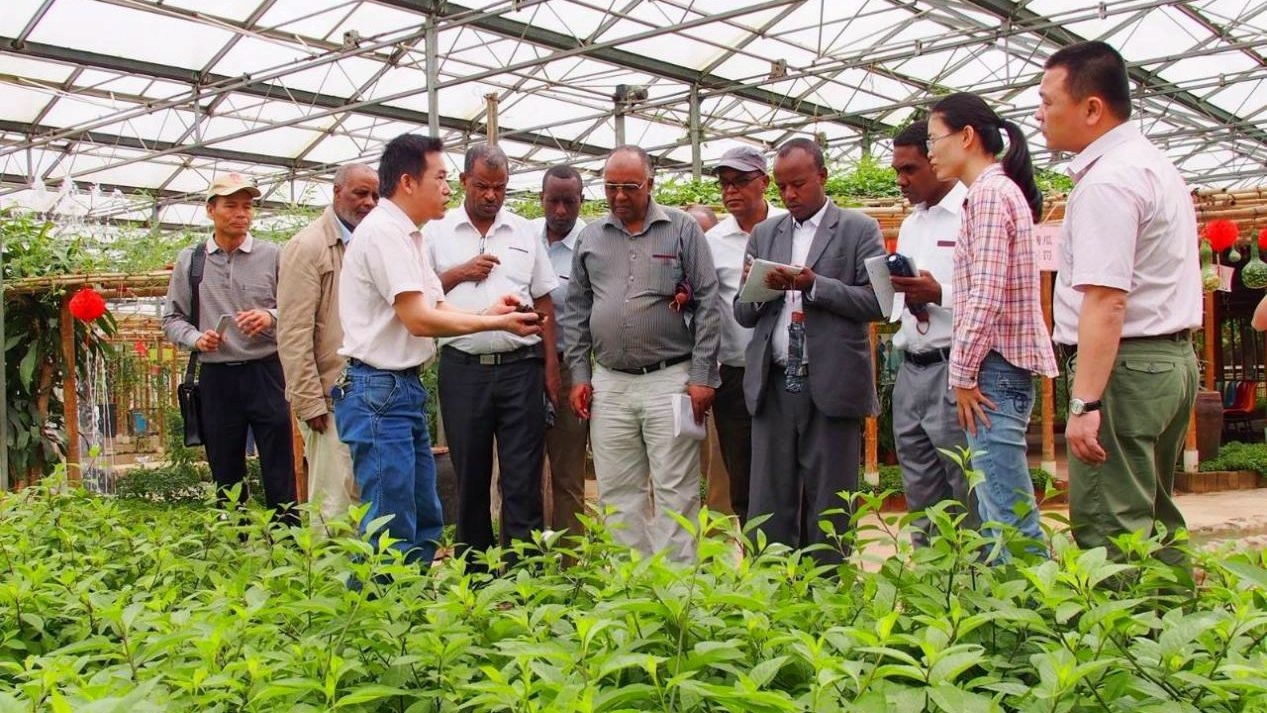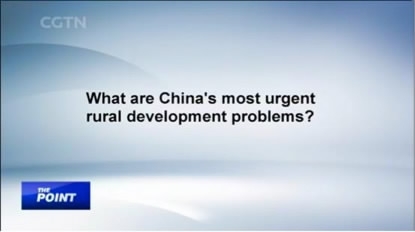
Opinions
17:09, 27-Oct-2017
Unlocking the potential of the Chinese countryside
By CGTN’s The Point

One of the next great goals of China is to develop rural communities almost on a par with urban neighborhoods.
In his report to the 19th National Congress, General Secretary of the CPC Central Committee Xi Jinping said agriculture and rural development are fundamental to China and in the coming year, the country will pursue a rural vitalization strategy.
“I have been listening to Xi’s report with great excitement with this new approach,” said Jessica Jiang, co-founder of the Rural Culture Renewal Volunteers Association (RCRA) and the World Rural Development Committee (WRDC).
She told CGTN’s The Point (@thepointwithlx) that the strategy puts the countryside on a footing almost as high as urban development.
“In the past, China needed modernization, however, in the future, according to President Xi, if we can provide better infrastructure in the countryside, better opportunities…people can live there,” she explained.

Professor Wang Siming of Nanjing Agricultural University, pinpointed three urgent issues in China’s countryside – the transition from the quantity-oriented to quality-orientated agriculture, the disparity between urban and rural areas, and environmental maintenance in the face of a booming rural economy.
Another professor, Min Qingwen of the Chinese Academy of Sciences, added that besides production, the social function is also very important in rural development.
According to the 2017 government work report, the number of people living in poverty in rural areas last year was reduced by 12.4 million, and more than 2.4 million of them have been relocated.
President Xi has said that by the end of 2050, China will be truly modernized and many people will enjoy a beautiful life.

“China is now encouraging people living in the countryside to pursue more careers other than farming,” Jessica Jiang said. “In the last few years, about 5.7 million people went back to the countryside to create new jobs. Many of them went to the tourism sector and opened guesthouses.”
Vincent Martin, the representative of the UN Food and Agriculture Organization in China and the DPRK, also contributed to the debate. “Rural areas have for too long been seen as a poverty trap, while they could be key factors in economic growth," he said.
New technology used by Chinese farmers struck him most. “They use the Internet, e-agriculture, e-commerce that can leverage the potential of agriculture and can better connect farmers with markets," he said.

SITEMAP
Copyright © 2018 CGTN. Beijing ICP prepared NO.16065310-3
Copyright © 2018 CGTN. Beijing ICP prepared NO.16065310-3